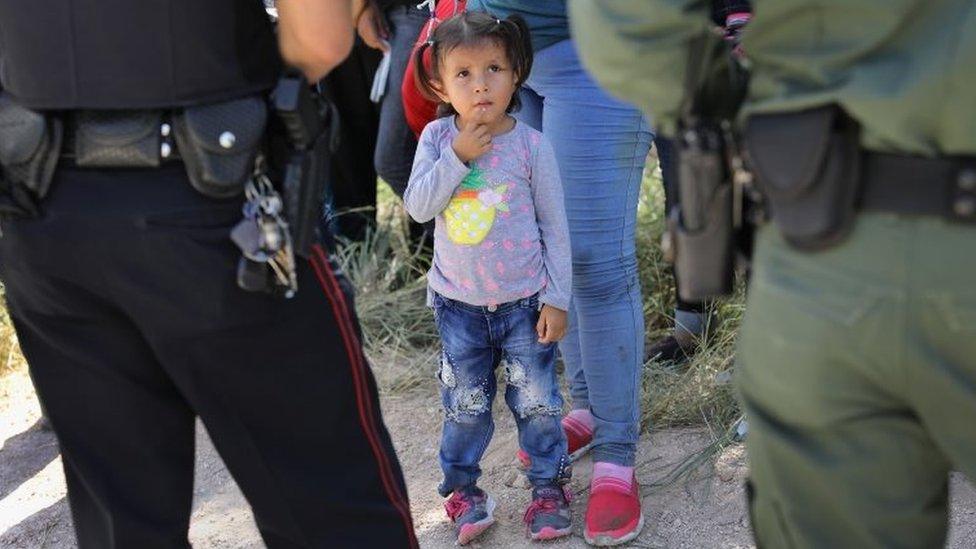US cannot reunite dozens of child migrants with their parents
- Published
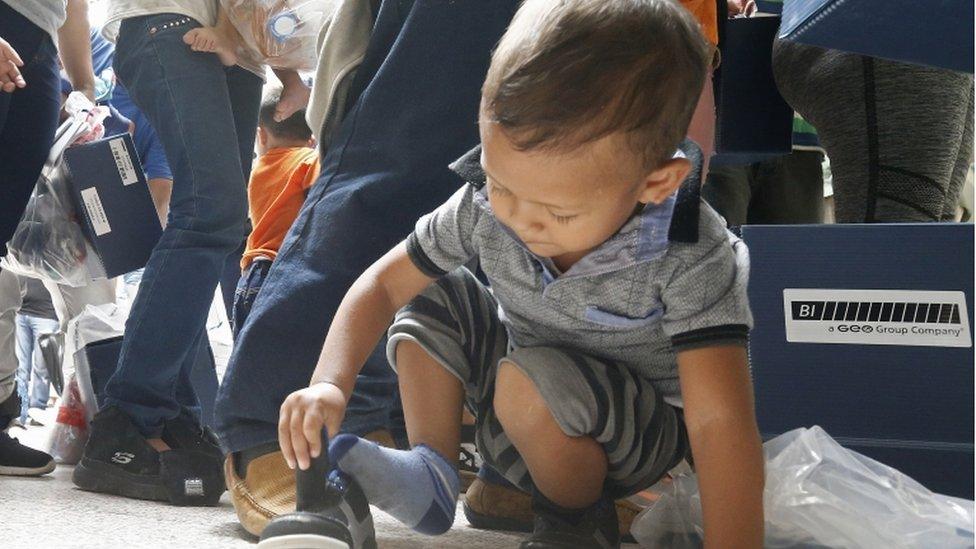
A young migrant child waiting to be processed in Texas after the government's suspended zero-tolerance policy
The Trump administration has said 27 young migrant children are "not eligible for reunification" with their parents, according to a court filing.
Twelve other children's mothers or fathers have already been deported from the US, said the government.
"Legitimate logistical impediments" are delaying reunions for many of the 102 children under five years old who were taken from parents, US officials say.
Nearly 3,000 children were split from undocumented adults entering the US.
As he boarded a plane to Europe on Tuesday, President Donald Trump was asked his solution to the child migrant situation.
He said: "Don't come to our country illegally. Come like other people do. Come legally."
His administration was bound by a court order to reunite children aged five and under by 10 July.
'It's been 50 days since I heard of my son'
The Department of Justice (DoJ) and American Civil Liberties Union's (ACLU) joint status report on Tuesday detailed why the 27 children cannot yet be reunited with their families.
The parents of 10 children were being still held in criminal custody after crossing the US border without papers, and have yet to be fully assessed, said the report.
Eight other children's parents have a "serious criminal history" including narcotics, human smuggling, murder and robbery.
Two other children cannot be reunited with parents because of a possible threat of child abuse.
Five children had been separated from adults who were not their parents.
Another child's parent is being treated for a communicable illness.
The location of another child's parent has been unknown for more than a year. Records show both parent and child might even be US citizens.
Some 75 of the 102 separated children have been determined eligible to be reunited with their families, according to the Department of Health and Human Services (HHS).
But as of Tuesday afternoon, the government said it had only reunited four of those children with their parents.
It said it expected to reunite another 34 by the end of the day, in accordance with the deadline.
Trump supporters talk family separations and border security
But 12 children cannot be immediately reunited with their families because their parents have already been deported.
For those children, the court filing says they "may be reunified if their parents can be located and if those parents request reunification".
The ACLU said it accepted that those parents in criminal custody cannot be reunited with their children yet.
But it said in many cases "the government is not in compliance with the clear deadline ordered by the Court".
The ACLU said: "For the [parents] who were deported without their children, [US government officials] have not even tried to contact them or facilitate their reunification by today."
What happens now?
The government will probably receive an updated order and deadline for reuniting these children.
Trump administration attorneys have requested a "flexible schedule" for reuniting or removing children since "pieces of this process are out of [the government's] hands".
The filing notes that the government agencies and ACLU are working together to locate parents in immigration detention facilities.
US government officials recently told four immigrant mothers they must pay for DNA tests to be reunited with their children, an immigrant shelter in El Paso, Texas, where the women are staying, told the Daily Beast, external.
Feeling what it's like to cross the US border
At a hearing on Monday in San Diego, California, a federal judge agreed with the government that some cases "will necessitate additional time".
The government is still mandated to reunite the remaining children aged five to 17 - numbering as many as 2,900 - with their parents by 26 July.
Meanwhile, a court in Los Angeles has rejected the Trump administration's request to allow the long-term detention of illegal immigrant children.
Under a 1997 agreement, child migrants can only be detained for 20 days.
The federal judge said the administration's request to extend that limit was "a cynical attempt" to shift immigration policymaking to the courts.
Another 10,000 or so migrant children currently in US custody entered the country without parents, undertaking the long and dangerous journey alone or with strangers.
Cisary Reynaud has not spoken to his daughter since they were separated
- Published10 July 2018
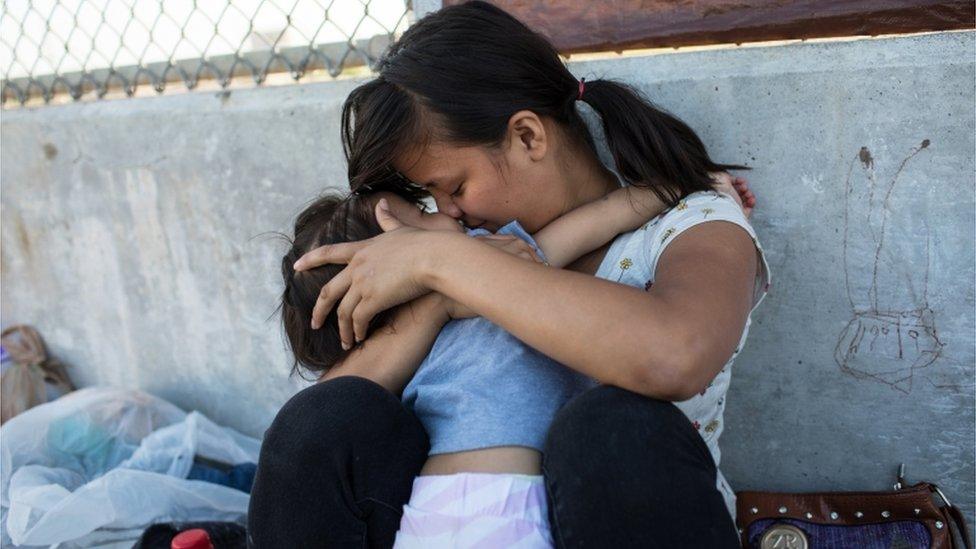
- Published19 June 2018
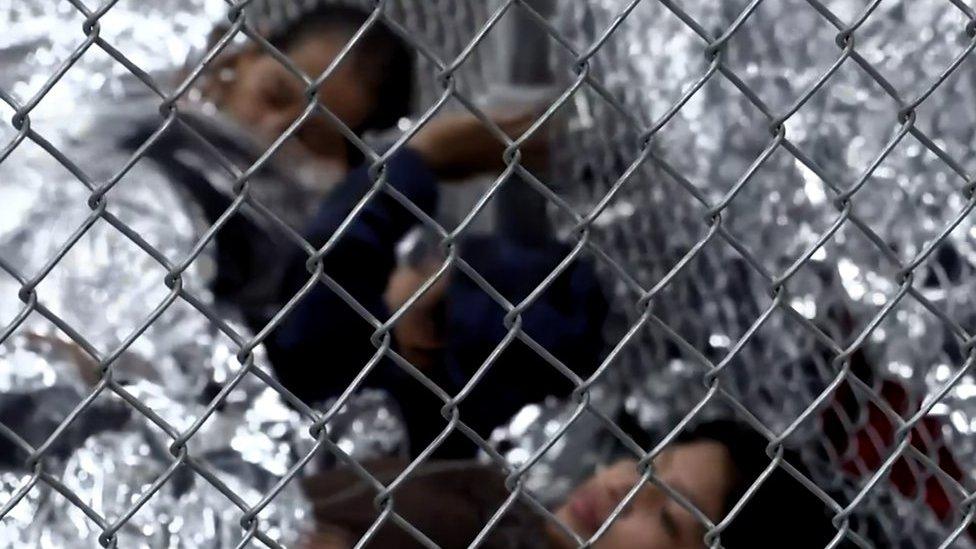
- Published26 June 2018
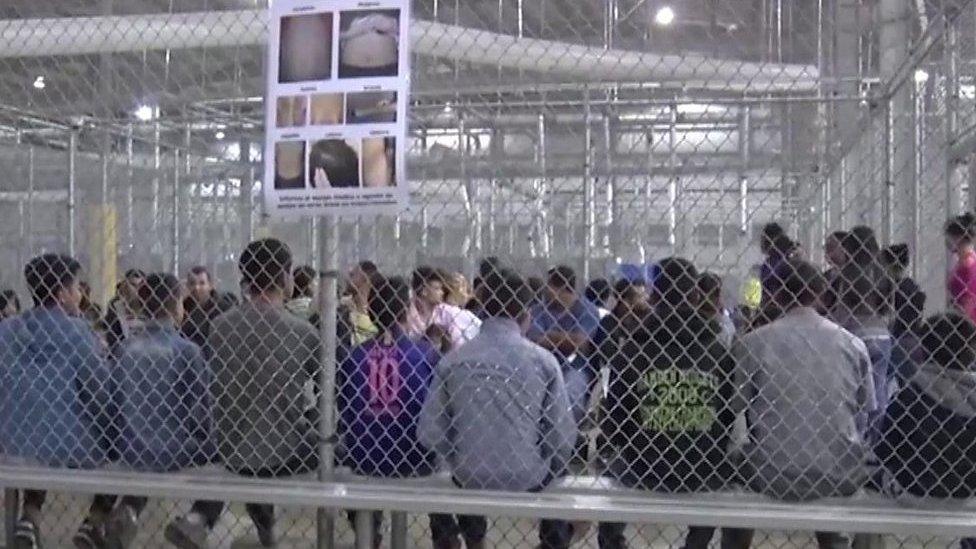
- Published4 July 2018
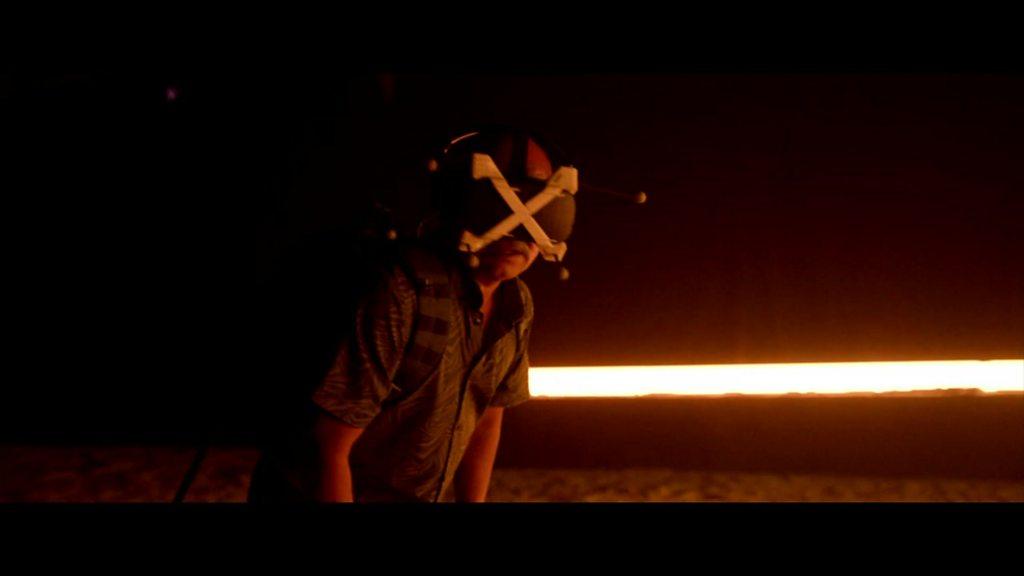
- Published22 June 2018
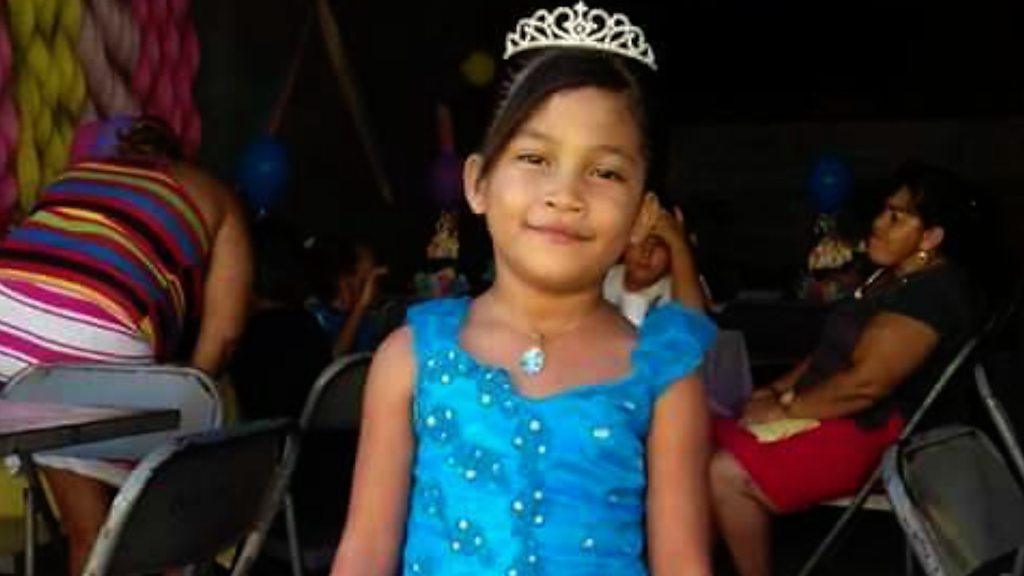
- Published19 June 2018
